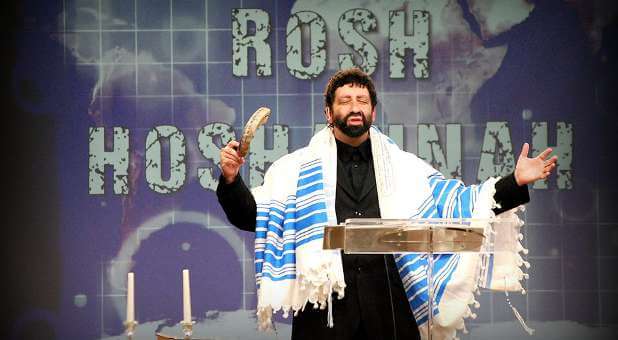Recently I had the privilege of visiting the largest Messianic congregation in America—Beth Israel Jerusalem Center led by Rabbi Jonathan Cahn in Wayne, New Jersey. I thoroughly enjoyed the service and, as a Gentile, was completely with the music and the message. I enjoyed the Hebrew style melodies and some of the Hebrew blessings that were interspersed.
Over the years it’s been exciting to report the growth of the Messianic movement, which basically began only a few years before Charisma started in 1975. In fact, Charisma may have contributed to its growth because we’ve given it so much coverage.
Only a few months after Charisma first published, I attended a service in Orlando led by an early Messianic named Manny Brotman. I was so moved by his message and what I learned about the Messianic movement that it resulted in a cover story for our seventh issue.
The headline read, “Is It Kosher To Believe In Jesus,” and we featured Sandra Sheskin, a talented singer who was one of the first to popularize Messianic-Hebrew type of worship music. Interestingly, she and Manny married a couple of years later.
We’ve run other stories, like “Believing in Messiah Yeshua” in the September-October 1976 issue, and “Have You Hugged a (Messianic) Jew Lately?” from the April 1997 issue.
Several times I have spoken to Messianic leaders who have expressed sincere appreciation for the coverage Charisma has given the movement. I was unaware that we were giving that much coverage. From our view, we were only covering what God was doing. I also had a heart for the Jewish people and for Israel, and the stories seemed to come naturally.
Over time I began to observe and to appreciate the hostility that the Messianics encounter—not only from the Jewish community but also from many Christians who believe in replacement theology. There are some that don’t have theological reasons not to support the Messianic movement—they just are uncomfortable with it and tend to ignore it. This has been true of most Christian media. Our coverage is legitimate and its growth has, leaders have told me, contributed to its recognition in the mainstream and spirit-empowered community.
Charisma has also been a strong supporter of Israel. In fact, the Israeli tourism office actually gave us an award in the late 1980s because, they said, we were the most pro-Israel Christian magazine in the country. Over the years, we have raised hundreds of thousands of dollars for various causes both on our own as well as through Christians United For Israel.
I had a small part in helping to start CUFI in 2006, mainly by hosting a “Night to Honor Israel” in Orlando that prompted John Hagee to believe that these events could be held around the country. I also helped him organize the meeting in which Christians United For Israel was kicked off in San Antonio, Texas on February 6, 2006.
At the first Christians United For Israel event, we made friends with the Jewish community in Central Florida—friendships that continue this day. One of the rabbis was concerned that this was going to be a proselytizing event (it wasn’t). It was a sincere show of support by Gentile Christians for the Jewish people and the State of Israel. But my rabbi friend wanted me to exclude Messianics from participating in the pro-Israel event.
I knew this was a touchy issue. I didn’t want to offend my new rabbi friend nor did I want to be disloyal to my Messianic brothers. The rabbi wanted me to publicly distance myself from the Messianics. I told him I could not do that because I consider them “brothers in faith.”
I remember that it shot through my mind to say brothers in Christ (which is how we refer to other believers), but the Holy Spirit must have given me the phrase “brothers in faith” because the rabbi seemed to accept that. In fact, he said to me “we consider them that too,” and we never discussed it again.
I can only assume that the rabbi meant that he considered them former Jews who had become Christians. But, I believe that Messianic Judaism is actually the fulfillment of Judaism in that they accept Jesus as Messiah, and all the early church fathers were Messianic Jews. The Book of Acts said that they turned the world upside.
Charisma is proud of its association with the Messianics. We praise God for what we see happening both with the Gentile church understanding their Jewish roots and also thousands of Jews recognizing that Jesus of Nazareth is the Messiah.
Steve Strang is the founding editor and publisher of Charisma. Follow him on Twitter or Facebook stephenestrang.














































